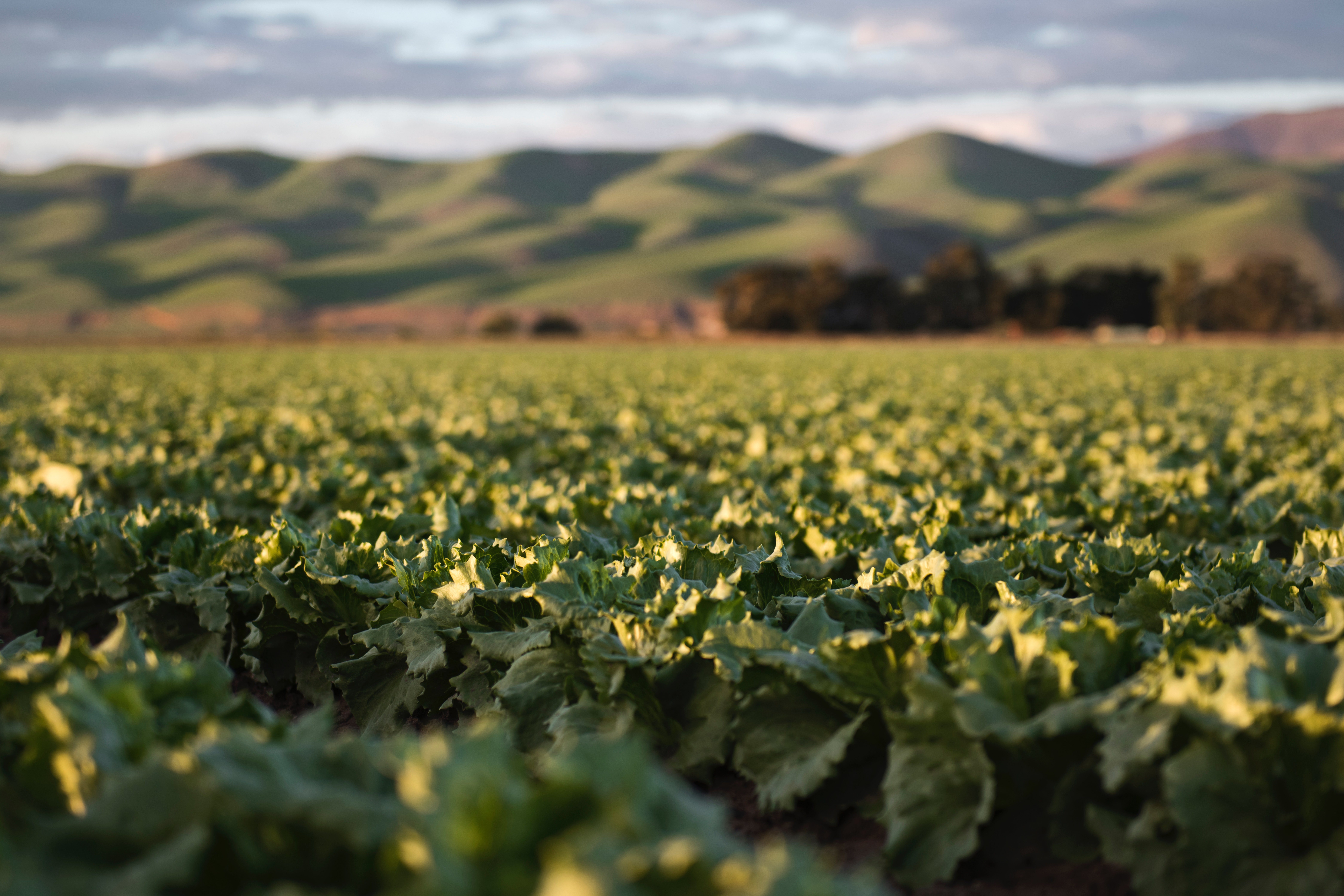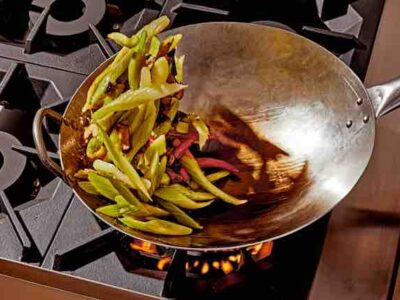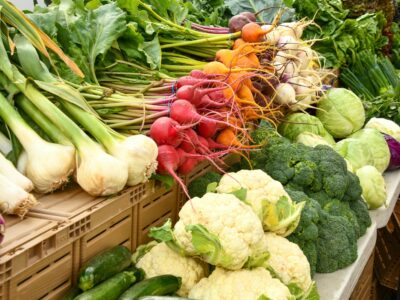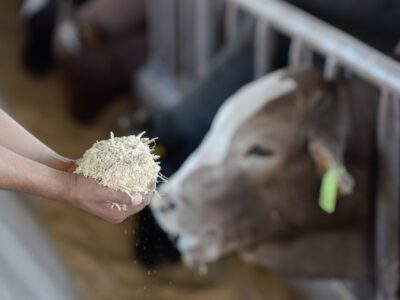Blue Hill Chef Advocates For Small Farms Amid Pandemic
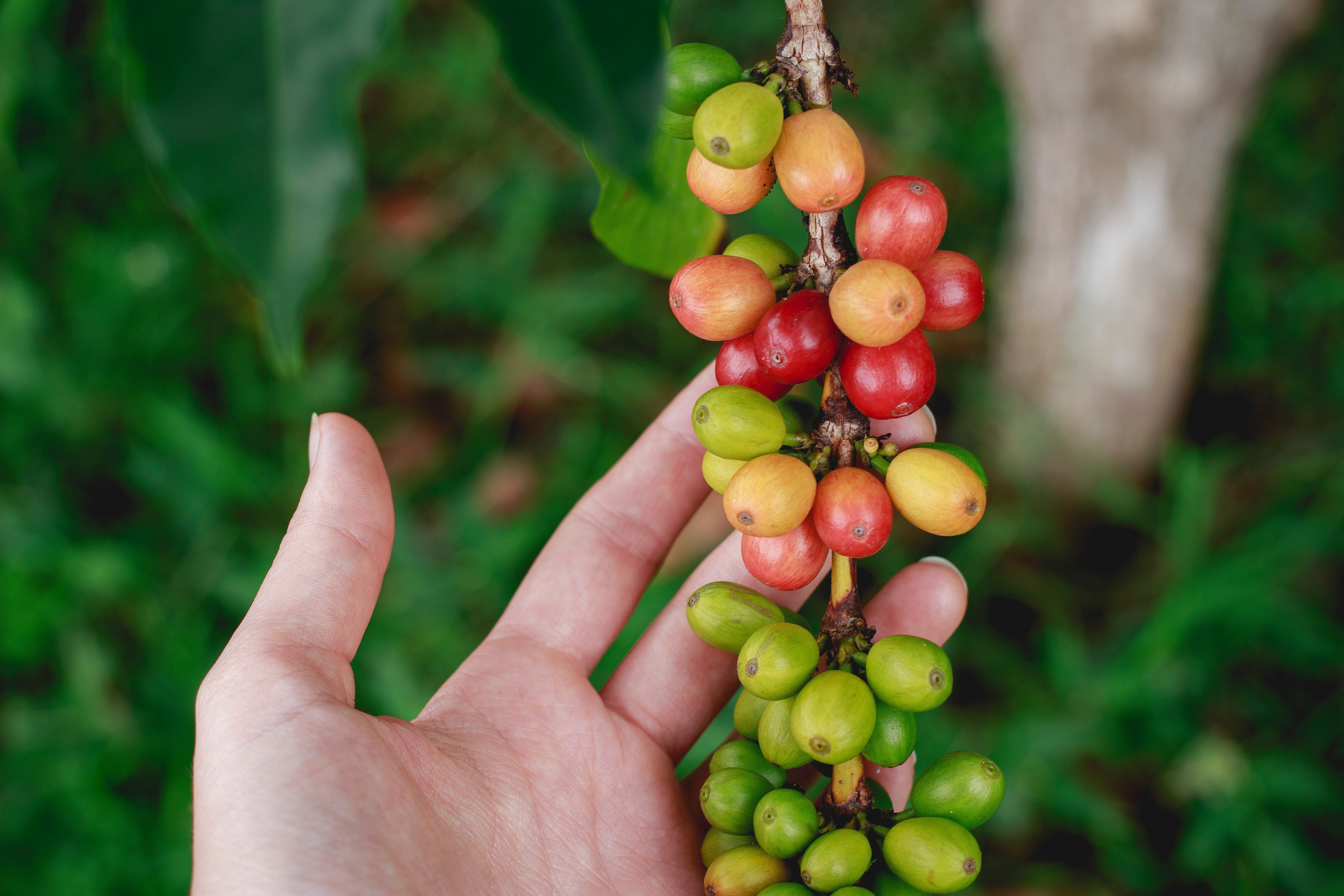
In Lower Manhattan’s Battery Park City, surrounded by historic buildings and shiny sleek high-rises, a new urban vegetable garden is on view. Further upstate in the Hudson Valley, three cooks from renowned restaurant Blue Hill at Stone Barns, plant and harvest their own vegetables. And across the Atlantic, chef Gervis Casanova of Cologne, Germany, has grown beets, carrots, potatoes, and more in his backyard garden.
These gardens are all part of—or inspired by—The Kitchen Farming Project, a movement spearheaded by Dan Barber, the two-time Michelin starred chef of Blue Hill. With his commitment to local and organic ingredients, much of them sourced from the farmland that surrounds his restaurant, Barber is a paragon of farm-to-table dining.
Amid the COVID-19 crisis, Barber realized many of the small farms he worked with pre-pandemic were in danger of shutting down altogether. As restaurants across the country have closed, and only some now reopened with limited capacity, the significant dip in business has crippled many smaller food producers. “All these restaurants that support this network of incredible farms and diversity aren’t open now and might not be open again,” says Barber. “Simultaneously, Big Farm is taking over.”
In an effort to stave off a future where corporate farms control the food supply for restaurants, Barber started The Kitchen Farming Project to highlight the crucial relationship between small farmers and the restaurant industry—and he engaged unemployed line cooks across the globe in the process. The project began with three Blue Hill line cooks, Pruitt Kerdchoochuen, Bronson Petti, and Chuan-Chieh Chang, who planted their own gardens and documented their progress on social media. The movement has grown to include restaurateurs from Canada to New Zealand.
Saving Farm-to-Table
Although a phrase that’s been overused and misused in recent years, the concept of farm-to-table has become a pillar of American fine dining. The basic philosophy is that the food being served is sourced directly from a farm rather than going through a retail store or distributor.
The term also highlights the mutually beneficial relationship between a restaurant and a local farm. Chefs and farmers alike seek out these partnerships for the good of both parties. Chefs often prefer to source directly from a farm to ensure the quality and freshness of the food, and when farmers sell directly to restaurants, they’re able to retain more profit from their crops than when selling to retailers or distributors. Some farmers also relish the knowledge that their crops will be handled with care and prepared according to high standards.
This is exactly the kind of symbiosis on display at Blue Hill. The restaurant sources much of its food from the surrounding farm, the Stone Barns Center for Food and Agriculture, as well as from other producers in the bucolic Pocantico Hills area of upstate NY. Barber has firsthand knowledge of how valuable this relationship between a restaurant and a farm can be, and it’s these connections that Barber is most worried about amid the current climate.
“We’ve got to help safeguard independent producers – and to keep people engaged about the food supply in a broader sense,” he says. “When you’re growing your own produce, you can’t help but notice the difference in quality and flavor.”
From Kitchen to Garden, and Back Again
The Kitchen Farming Project began with a basic question: What would it look like if out-of-work cooks around the world dug in and built a garden?
In an effort to answer that, Barber teamed up with Stone Barns Center farm director Jack Algiere to create instructions for participating cooks on how to design and set up a garden. Algiere suggests plots of 12 x 15 feet divided into six families of vegetables including nightshades (eggplant, tomatoes, peppers) and brassicas (cabbage, kale).
The movement started with the Blue Hill line cooks, but quickly expanded from there. Barber reached out to renowned chefs around the world—including Daniel Humm of Eleven Madison Park and Christian Pugliese, who owns Relae in Copenhagen among other establishments—and asked if they’d like to have their own line cooks participate. Most of them responded with an enthusiastic “yes.” Now, anyone can go online, sign up, and participate. In fact, of the approximately 2,000 people who had signed up by late May, a third do not have a direct connection to the restaurant industry – an indicator that it’s not just foodies who are concerned about the future of our food supply chain.
“If you sign up you’ll get step-by-step recipes for what you need to start their own garden,” explains Barber. “You’ll get a list of the basic tools you’ll need. You’ll be taken all the way through weeding and harvesting, and then we’ll take you into the kitchen with the ingredients.”
Through his efforts, Barber hopes to inspire the next generation of culinary artists to take control of the future of food. An ambitious goal for sure, but one he seems to be reaching. “Cooks don’t want to return to a world that’s serviced by megafarms in California, Arizona, and Texas,” he says. “That’s what this comes down to. Chefs have been part of this exciting social movement called farm-to-table, and now this is a real inflection point.”

